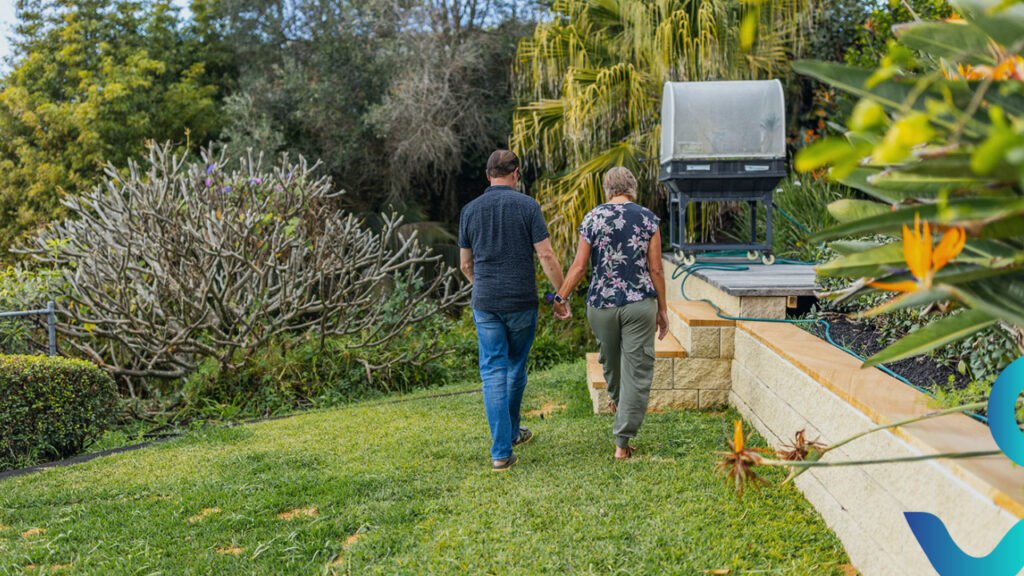
How I Trigger my Husband
I have an admission to make.
I’m messy. Whether it’s the shit I leave around the house, or my email inbox – unless it’s important or extremely urgent, I’m comfortable leaving things unopened, unanswered, lying around, until the moment it requires my attention.
My husband Kirk, on the other hand, likes everything in the right place, organised, clean, and simple.
This plays out elsewhere in our relationship.
Kirk is great in the garden. He spends countless hours making sure everything is perfectly trimmed, planted and organised to leave a scenic garden clean and tidy for us to enjoy.
Except, it wasn’t essential to me. Having a perfectly presented garden was never something I prioritised. So…the significant amount of effort he put into cleaning up wasn’t something I recognised, because it simply wasn’t something I needed or noticed.
You can imagine early on in our relationship, my lack of attention to the smaller details that were so important to Kirk, triggered him. Not because I didn’t contribute, but because I failed to recognise the result of his work and acknowledge his effort. This eventually came to blows…let me explain.
Stealth Expectations
“Stealth expectations” are those that we carry within ourselves, often subconsciously. These are expectations that we may never articulate to others but become frustrated or upset when they are not met. These are the triggers that lurk unseen, poised to disrupt our relationships.
Stealth expectations can be particularly destabilising because they are, by their very nature, hidden. They are not communicated, and yet when they go unmet, they can lead to feelings of disappointment, resentment, or even anger. To add to the melting pot, the person on the receiving end of these unmet expectations may feel blindsided, confused, and frustrated, not understanding what they’ve done wrong.
All too often I hear about or see stealth expectations metastasise into triggers between partners, family members, friends and colleagues. Guilty as charged!
So, what do you do if aspects of your relationship with someone start to trigger you?
The essential element of healthy relationships
The first sign of life is growth, and how you communicate with each other is how you grow together.
So I’ll ask you:
How often do you communicate in your relationships?
I don’t mean how many times a day you text each other.
How often do you sit down to have a crucial conversation with intent?
We’ve all heard about the importance of open, honest communication in relationships. However, there’s a difference between talking and communicating with intent.
Are you able to tell those closest to you, what your expectations are, and gain an understanding of theirs? By communicating these expectations openly, we create opportunities for our relationships to grow in positive ways.
If these small details that I failed to notice about Kirk were left undiscussed, these triggers may have built up over time and led to larger issues.
Instead, Kirk and I decided to talk about it.
Pause…I don’t want you to think we had this perfect, cuddly experience where Kirk told me he was annoyed and we sat down and resolved it in a couple of minutes.
Kirk expressed his frustration with my lack of cleanliness and lack of acknowledgement for all the work he was doing.
I initially lashed out. I didn’t understand what was going on. To me, he was speaking like these triggers had been carrying on for a long time but I felt as though he was coming at me from out of the blue. “Where is this coming from? What have I done to deserve this?”
It was only when we decided to step back and help each other understand the things that were important to each other, that we were able to recognise the issues from each other’s point of view.
With open communication, we were both able to express our feelings – what was important to us, why it was important and how we can work together so that both of our needs are met.
We detached ourselves from the fear of having a confronting conversation and accepted that we needed to step into each other’s shoes to understand each other’s needs. Kirk and I have been able to accept the triggers in our relationship and learn from them.
By bringing our expectations out into the open, we can help alleviate the hidden triggers that may have developed. We can work together to understand and meet each other’s needs, fostering a stronger, healthier relationship. It’s about more than just talking. It’s about communicating with intent and understanding.
Four questions to ask in your relationship
- What about me, or my actions, triggers you?
- What is important to you?
- Why is it important to you?
- What do you expect from me?
These questions will help start the conversation and understanding of what’s important in your relationship, and how to best meet each other’s needs.
At the end of the day, those closest to us are the most important people in our life – they’re our “dream team” and without the ability to have crucial conversations with each other, we’re simply unable to grow.
A willingness to understand the other person’s perspective and a commitment to work through differences together are key to avoiding triggers and fostering healthier relationships.
Is it time to have a crucial conversation with your partner or “dream team” member?
Prioritise it today!
Layne xx





Responses